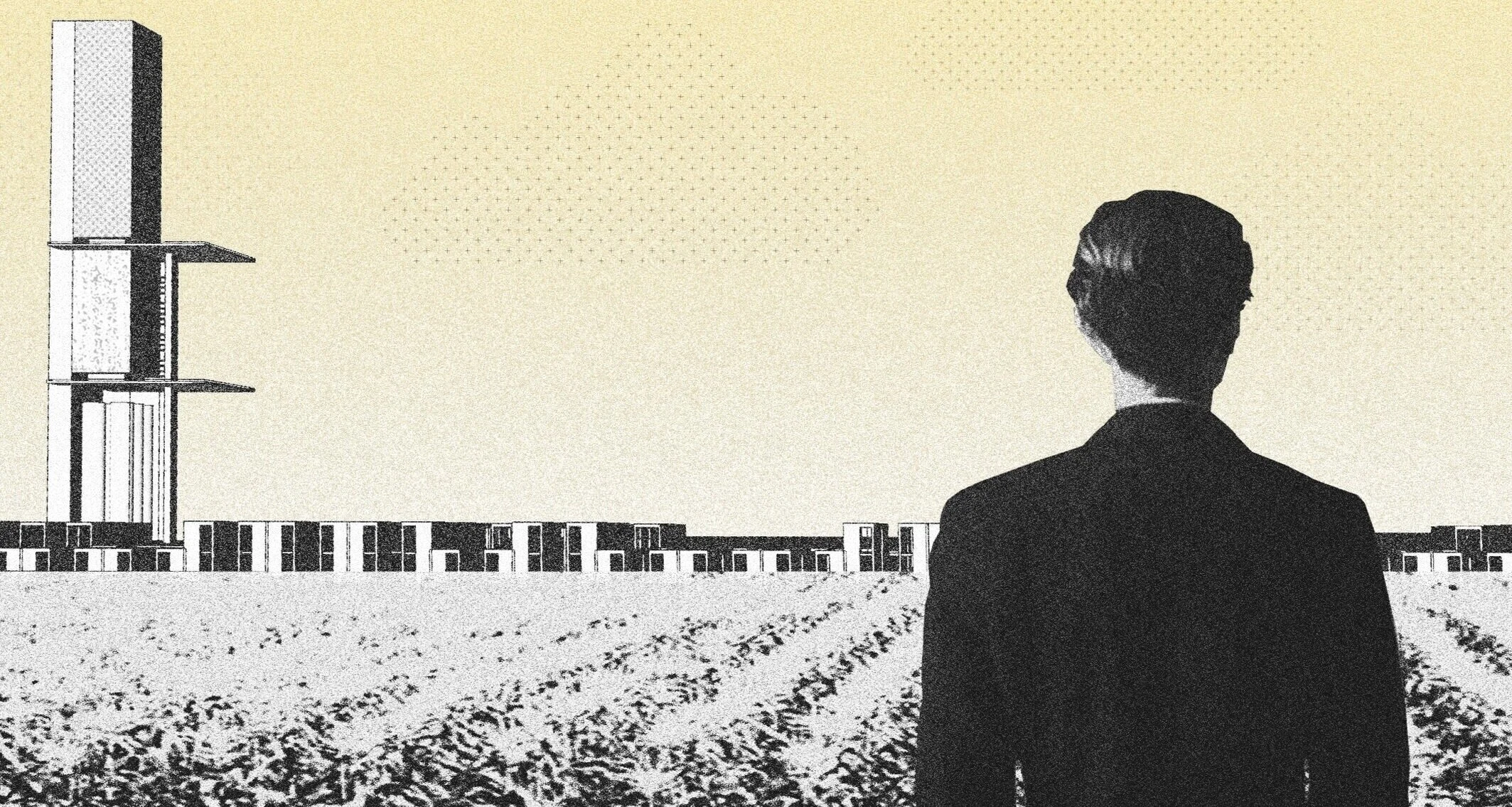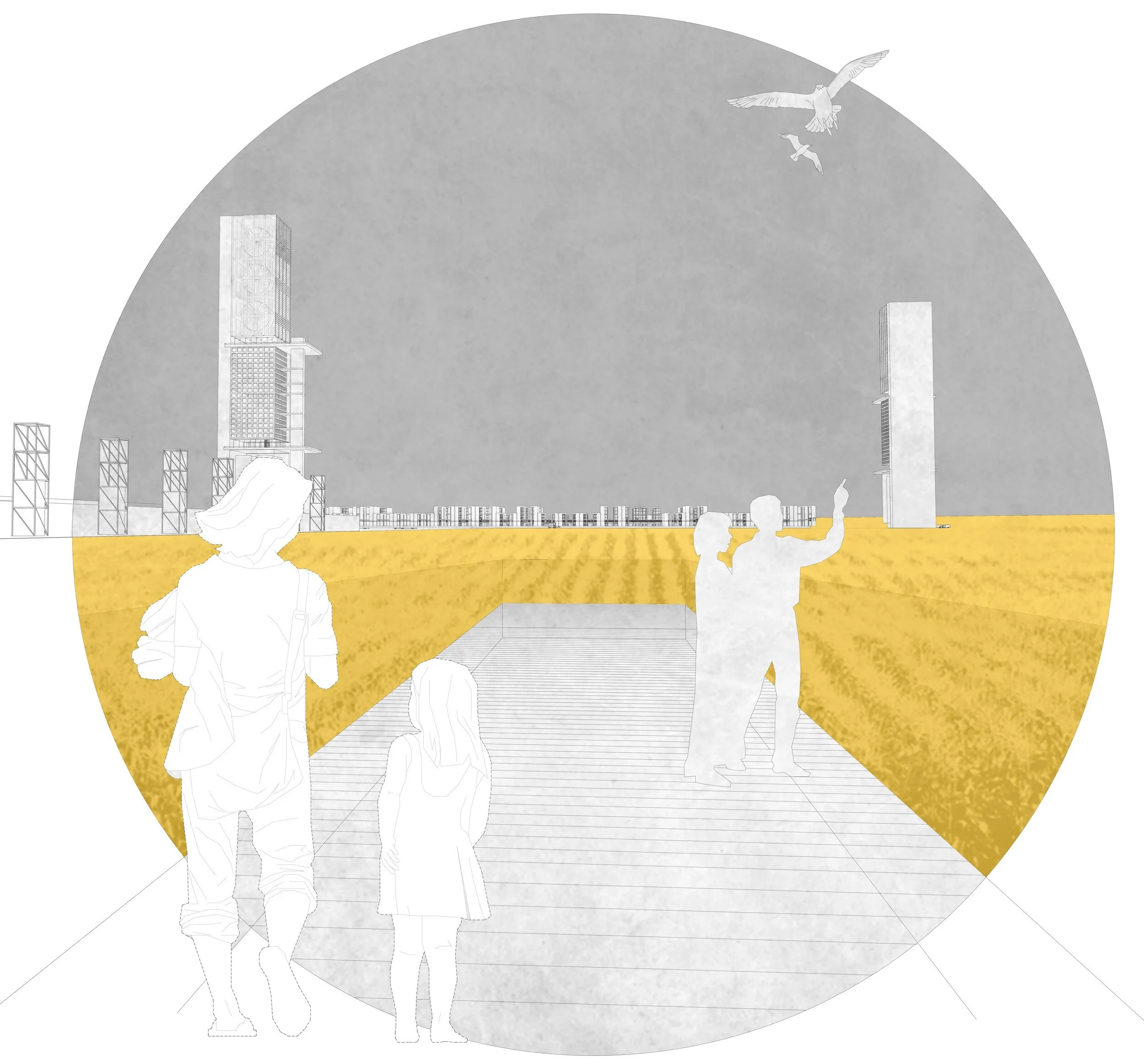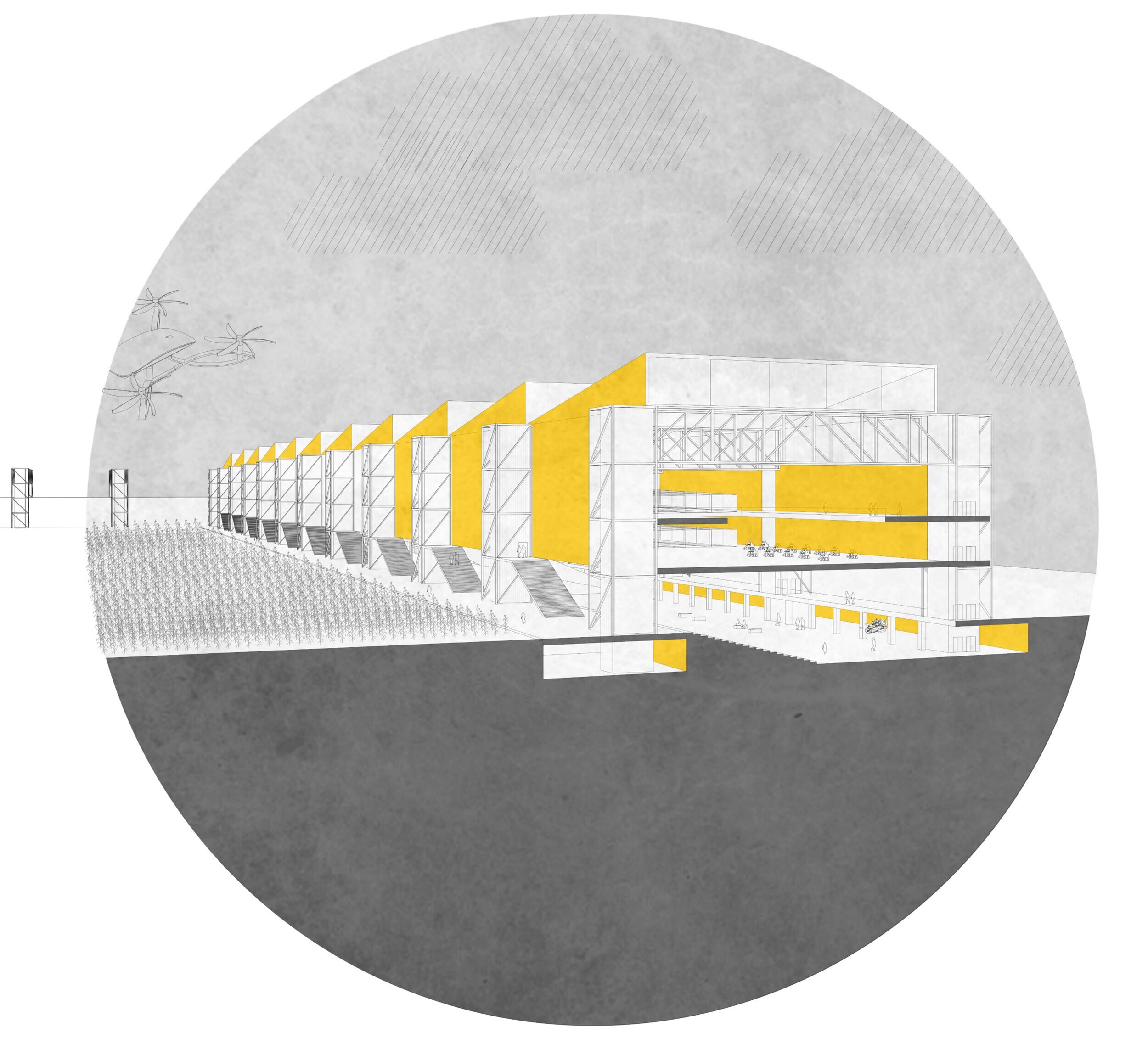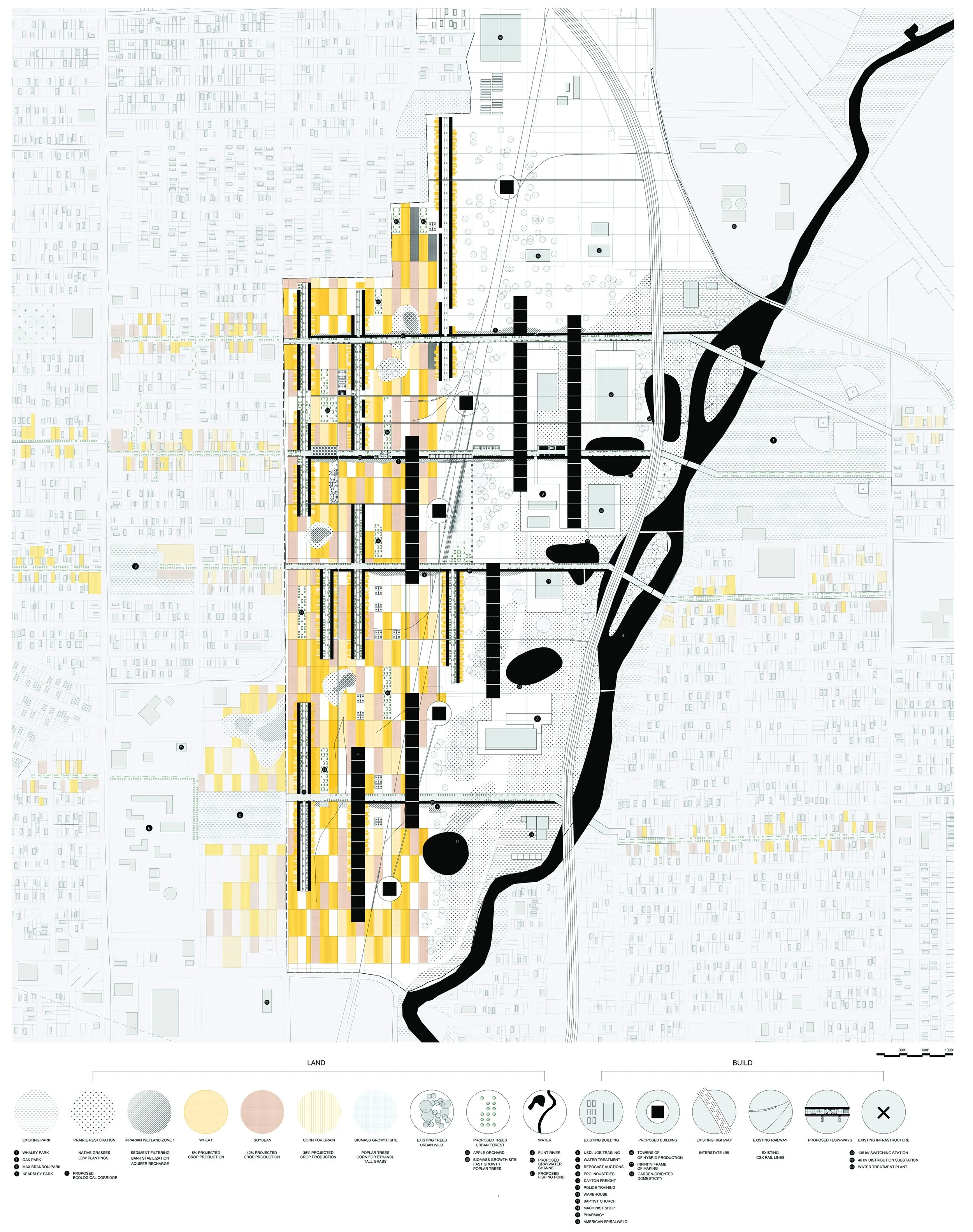Cultivated
City
Anthony Averbeck
Advised by Shiqiao Li
Flint, MI, USA
The post-industrial American city of Flint, Michigan is at a critical moment of transformation. Emerging economic, ecological, and social crises have called into question established urban logics. While urbanization is moving at a breakneck pace, vast territories are declining. Global economic centers grow and countryside, small towns, and smaller industrial cities stagnate. Shrink-space is the direct result of a widening gap between the core and periphery in the world system. Flint is the 6th fastest shrinking city in the United States. A company city built on the mono-economy of automobile manufacturing during America’s postwar boom, it now finds itself left in the dust by globalization; a city increasingly characterized by decline, dereliction, inequality, and depopulation.
Cultivated City addresses the irony of the land crisis by returning 75% of the 400 acres of vacant Buick City plant site to a combination of ecological restoration and agricultural production; in theory breaking down the natural/human dichotomy of cities, and in practice offering new economic and cultural potential by bringing production and consumption in close spatial proximity, and slowly reviving Flint’s capacity for making. Spatially, the infinity frame of heavy industrial production is transformed into a new, flexible infrastructure for low-tech production, maker space, and server farms. Towers at the intersection off attractor points hybridize energy production and agricultural storage with housing and public programs, giving visual prominence to the oft-hidden mechanics of the city’s future vitality.







